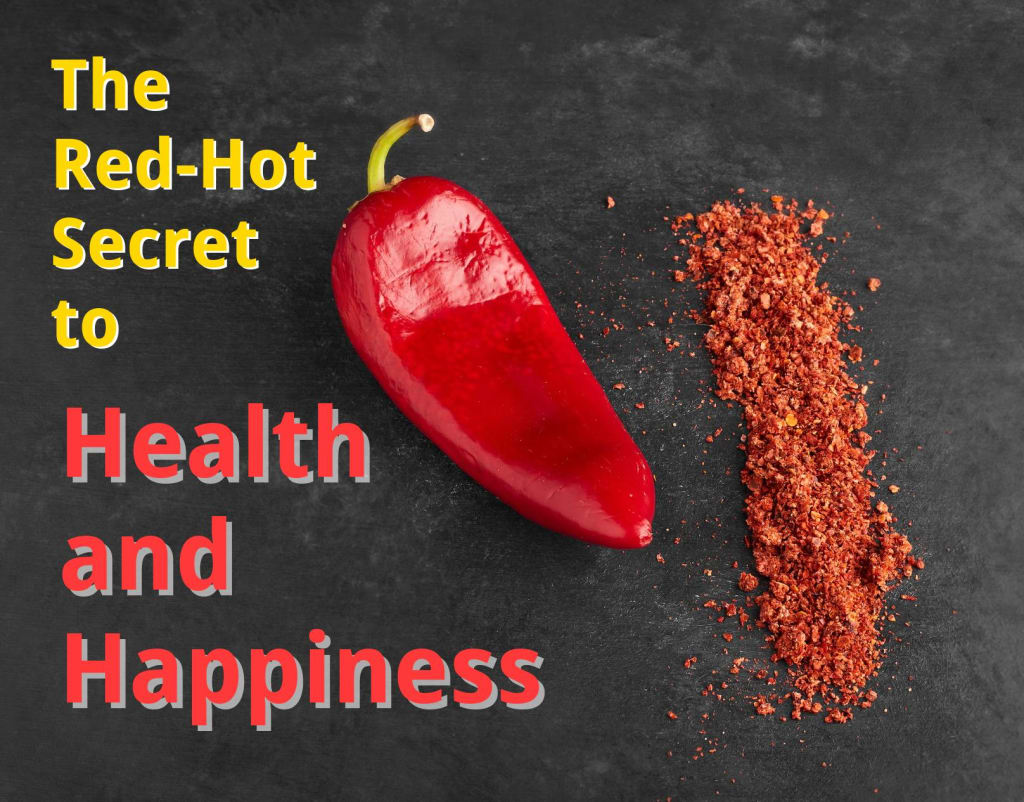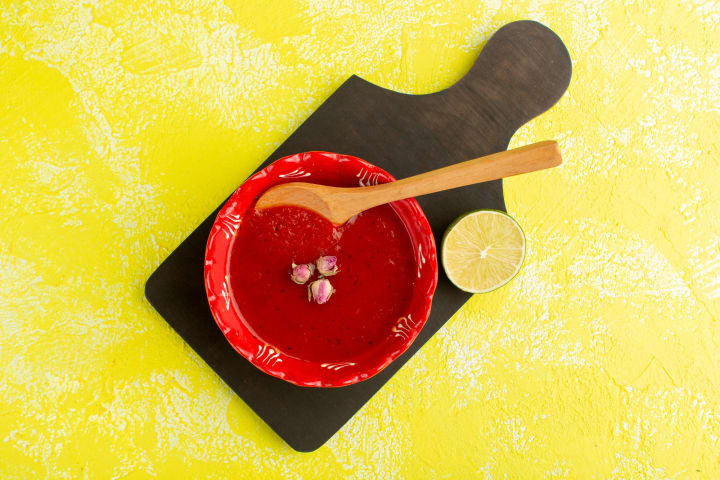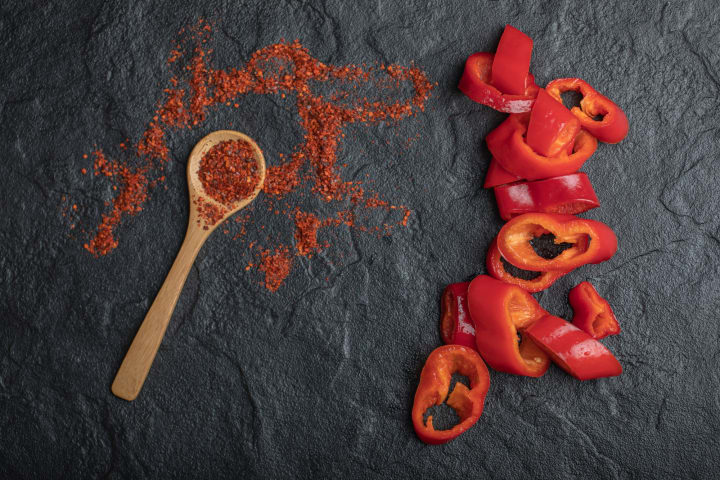Holy Paprika! The Truth About This Spicy Secret Ingredient
Unlock the Mysteries of Paprika Powder and Spice Up Your Kitchen with Flavors You Never Knew Existed

Paprika powder is a spice made from dried and ground capsicum annuum peppers. It is a popular spice in many cuisines, especially in Central and Eastern Europe. Paprika powder comes in various colors, ranging from bright red to deep brown, depending on the type of peppers used and the way they are processed.
The history of paprika powder dates back to the 16th century when Spanish explorers brought capsicum annuum peppers from the Americas to Europe. At first, these peppers were used primarily as ornamental plants, but soon people discovered their culinary and medicinal properties. The first paprika powder was produced in Spain, and it quickly became popular throughout Europe, especially in Hungary, where it was further developed and refined.
Today, Hungary is still the world's leading producer of paprika powder, and Hungarian paprika is considered to be the best in terms of flavor and quality. Hungarian paprika comes in several varieties, including sweet, hot, and smoked, and each type is used for different purposes in cooking.
Paprika powder is not only a delicious spice but also a healthy one. It is rich in antioxidants, which can help protect the body from oxidative stress and reduce the risk of chronic diseases such as heart disease, cancer, and diabetes. Paprika powder also contains vitamins A and E, which are essential for healthy skin, eyes, and immune function.
However, like all spices, paprika powder should be used in moderation. Eating large amounts of paprika powder can cause digestive issues, such as stomach pain and diarrhea, and some people may be allergic to it. Also, some types of paprika powder may contain additives such as salt or sugar, which can be harmful in excess.
When using paprika powder in cooking, it is important to choose the right type for the recipe. Sweet paprika powder is milder and sweeter in flavor and is often used in dishes such as stews, soups, and sauces. Hot paprika powder is spicier and is used in dishes such as chili, curry, and barbecue sauce. Smoked paprika powder has a smoky flavor and is used to add depth and complexity to dishes such as paella, roasted meats, and fish.

Here are some interesting facts about paprika powder:
• Paprika powder is not just a spice; it is also used in traditional folk medicine to treat a range of ailments, from sore throats to arthritis.
• The color of paprika powder depends on the type of peppers used and the way they are processed. Bright red paprika powder is made from ripe, sweet peppers, while deep brown paprika powder is made from dried, smoked peppers.
• Paprika powder is often used to add color to dishes, especially in Hungarian cuisine. In fact, the vibrant red color of Hungarian goulash comes from the paprika powder used in the recipe.
• In Hungary, paprika powder is so popular that it is considered a national symbol. The Hungarian town of Szeged is particularly famous for its paprika powder, which is protected by a geographical indication.
• Paprika powder is also used in the production of cosmetics, especially skincare products, because of its antioxidant properties.
• In addition to being used as a spice, paprika powder is also used to flavor snacks such as chips and popcorn.
Now, let's take a closer look at the health benefits of paprika powder:
Antioxidant properties
Paprika powder is rich in antioxidants, which can help protect the body from oxidative stress caused by free radicals. Free radicals are unstable molecules that can damage cells and contribute to the development of chronic diseases such as heart disease, cancer, and diabetes. Antioxidants neutralize free radicals and reduce their harmful effects.
Anti-inflammatory properties
Paprika powder has anti-inflammatory properties that can help reduce inflammation in the body. Chronic inflammation is a risk factor for many chronic diseases, including heart disease, cancer, and Alzheimer's disease. By reducing inflammation, paprika powder may help lower the risk of these diseases.
Supports healthy digestion
Paprika powder may also support healthy digestion by increasing the production of digestive enzymes. Digestive enzymes help break down food in the digestive tract and improve nutrient absorption. Paprika powder may also help relieve digestive issues such as bloating, gas, and constipation.
May help regulate blood sugar
Paprika powder may also help regulate blood sugar levels. High blood sugar levels are a risk factor for type 2 diabetes and other chronic diseases. Studies have shown that paprika powder can help improve insulin sensitivity and reduce blood sugar levels, making it a potentially useful tool for managing diabetes.
Supports immune function
Paprika powder is a good source of vitamin C, which is essential for a healthy immune system. Vitamin C helps protect the body against infections and helps stimulate the production of white blood cells, which are responsible for fighting off pathogens.
Supports healthy skin and hair
Paprika powder is also a good source of vitamin A, which is essential for healthy skin and hair. Vitamin A helps promote healthy cell growth and repair, and it helps protect the skin from damage caused by UV radiation.
When using paprika powder in cooking, it is important to be mindful of the amount you use. While paprika powder is generally safe to consume in moderate amounts, eating too much of it can cause digestive issues and other health problems. It is also important to choose high-quality paprika powder that is free from additives and contaminants.

Here are some tips for using paprika powder in cooking:
Use it as a rub for meat or fish. Mix paprika powder with other spices such as garlic, cumin, and coriander to create a flavorful rub for meat or fish.
Add it to soups and stews. Paprika powder adds depth and flavor to soups and stews. Add it early in the cooking process to allow the flavors to meld.
Sprinkle it on roasted vegetables. Paprika powder adds a smoky, sweet flavor to roasted vegetables such as sweet potatoes, carrots, and Brussels sprouts.
Use it in dips and spreads. Paprika powder adds a subtle heat and color to dips and spreads such as hummus and baba ganoush.
Make paprika-spiced popcorn. Sprinkle paprika powder over freshly popped popcorn for a flavorful snack.
In conclusion, paprika powder is a delicious and healthy spice that has been used in cooking and traditional medicine for centuries. It is rich in antioxidants, anti-inflammatory compounds, and essential vitamins, and it may help support healthy digestion, regulate blood sugar levels, and support immune function. When using paprika powder in cooking, it is important to choose high-quality powder and use it in moderation.
Trust me, I am a Hungarian guy, honestly, this is the best:
With love,
Blaise
About the Creator
Laszlo Hatvani
To be useful in the world, - I already felt this as a moral foundation in my childhood. In my opinion, the purpose of art is not only self-expression, but rather the improvement of the world and people through given experience.






Comments
There are no comments for this story
Be the first to respond and start the conversation.